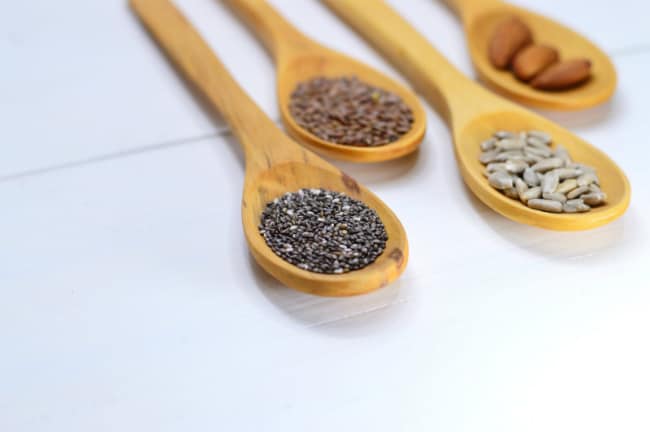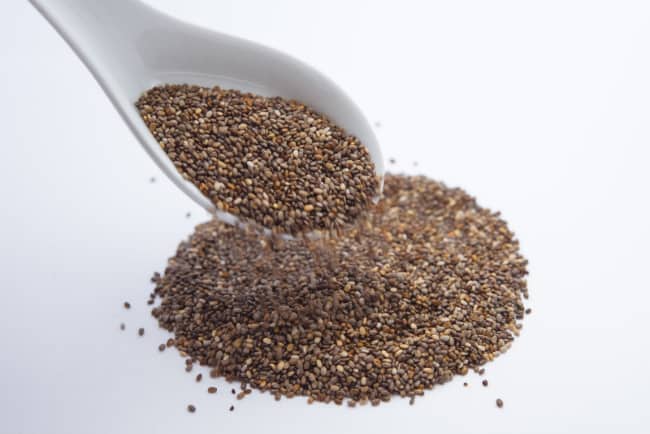
Celery Seeds: Benefits, Uses, and More
Celery seeds come from the celery plant, a vegetable fairly common in most grocery stores. These seeds look like tiny, shriveled lumps, but despite their appearance, they’re packed with nutrients and beneficial chemicals. Read on to find out why these innocuous-seeming seeds could be the answer to so many health issues.
Celery Seed Quick Facts
Latin name: Apium Graveolens
Other names: Ajwan, Celery Fruit
Family: Apiaceae, the same family as carrots, parsley, and angelica
Uses: Food, seasoning, and medicine
Cultivated: All over the world; wild celery is sometimes known as smallage
In use: Since at least AD 30 according to Aulus Cornelius Celsus, the Roman author of De Medicina
Celery Benefits and Side Effects

Celery seed and celery seed extract contain essential oils. These oils, in turn, contain apiole, a component of the seed associated with many health benefits, highlighted below. Other compounds of the celery seed which may have benefits to humans include:
- Limonene
- Flavonoids
- Bergapten
- Fatty acids
- Apiole
Celery Seed Benefits
Celery seed may be useful for:
- Joint Pain – as an anti-inflammatory
- Edema – as a diuretic and kidney tonic
- Building Bond Density – Celery seed is rich in minerals, which can aid in building strong bones.
- Celery seed is a kidney tonic.
- Menstrual cramps or other menstrual issues
- High blood pressure
- May regulate blood sugar levels
- Can help with sleeplessness or exhaustion
- Can help prevent urinary tract infections (UTIs)
- Flatulence
- Digestive issues
- High Cholesterol
Other more unusual uses include rubbing the oil from the seeds on the skin as a mosquito repellent. Celery is also an excellent diuretic (makes you urinate more, which may help flush out toxins), so plenty of water should be consumed while taking celery seed.
Many of the scientific studies done into celery seed benefits are on animals rather than humans, which may seem inconclusive. However, it’s reassuring to know that celery seed has been used for at least a thousand years with success in a wide range of medical areas.
Research completed in 2005 suggested that celery seed may even be useful for halting the spread of certain types of cancer; however, this study was on rats and can’t be seen as conclusive.
Celery Seed for Gout
One of the most notable historical and current uses for celery seed is as a treatment for gout. Gout is when uric acid builds up and starts to crystalize in the tissues and joints of the human body. The most common place to notice this is the big toe, possibly because of all the pressure feet and toes are under. The toe becomes swollen, hot, and can be susceptible to attacks of very intense pain.
Celery seeds contain three compounds, which may all help in the battle against gout:
- Beta-selinene
- Luteolin
- 3-n-butylphthalide (3nB)
These chemicals all work in separate ways to reduce the inflammation caused by the build-up of uric acid, and even to reduce the harmful chemicals that uric acid produces in the joints. Just eating celery won’t have the same effect. It has to be the seeds or a supplement made from the seeds.
Celery Seed Side Effects and Contraindications

IMPORTANT: Celery seed and celery extract should be avoided by pregnant women. Apiole has been used for centuries as an abortifacient: an herb used to cause a deliberate miscarriage. NEVER take when pregnant. You should always speak to a medical professional before taking any supplements for the first time, especially when pregnant or breastfeeding.
Other possible side effects, which may occur when taking high quantities of celery seed include:
- Liver damage (although at normal doses celery seed helps protect the liver)
- Kidney damage (again, beneficial at normal doses)
- Reduced breastmilk supply (celery seed has been taken in the past to deliberately reduce a nursing mom’s milk supply, and this is not recommended- talk to a lactation specialist if you feel you are over-lactating)
- Some people are allergic to celery, with reactions ranging from skin inflammation to anaphylactic shock. Those allergic to coriander, parsley, plantain, dandelion, birch, fennel, caraway, wild carrot, or mugwort may want to avoid celery.
- Do not use if your blood pressure is already low as celery seed is effective at lowering the blood pressure, which is usually beneficial.
- Don’t take celery seed for at least two weeks before scheduled surgery to prevent a possible interaction with the anesthesia.
- Some medications may interact with celery seed. Always check this with your doctor, as you always should, when taking any supplement alongside prescribed medication.
Although this seems like quite an alarming list, given a read through it’s clear that most of these warnings are common sense. For example, don’t take a supplement great for lowering blood pressure if your blood pressure is already really low!
Taking Celery Seed as a Supplement
The benefits of celery seeds can be enjoyed conveniently as a daily supplement. This takes away the hassle of gathering seeds from your own plants, or of measuring out and weighing store-bought seeds. Carefully dosed capsules can be taken once a day to enjoy various potential benefits, some of which are highlighted above.
Other ways to enjoy celery seeds as part of your daily life can be to sprinkle the seeds into salad dressings or soups. Cooking them into dishes is great for flavor but may destroy some of the useful constituents rendering them useless as a health supplement. It’s also possible to purchase celery seed oil, which is packed with nutrients and useful chemicals, but harder to dose than a professionally packaged supplement.
Celery is one of nature’s ways to keep healthy and address a range of medical concerns. A high-quality celery seed supplement could be the next step in taking control over your own wellbeing.
Takeaway
Celery Seed is the seed or fruit of the celery plant. This is a vegetable related to carrots and parsley, which is common and easy to cultivate. There are many potential celery seed extract benefits, including lowered blood pressure, better digestion, and better sleep.


